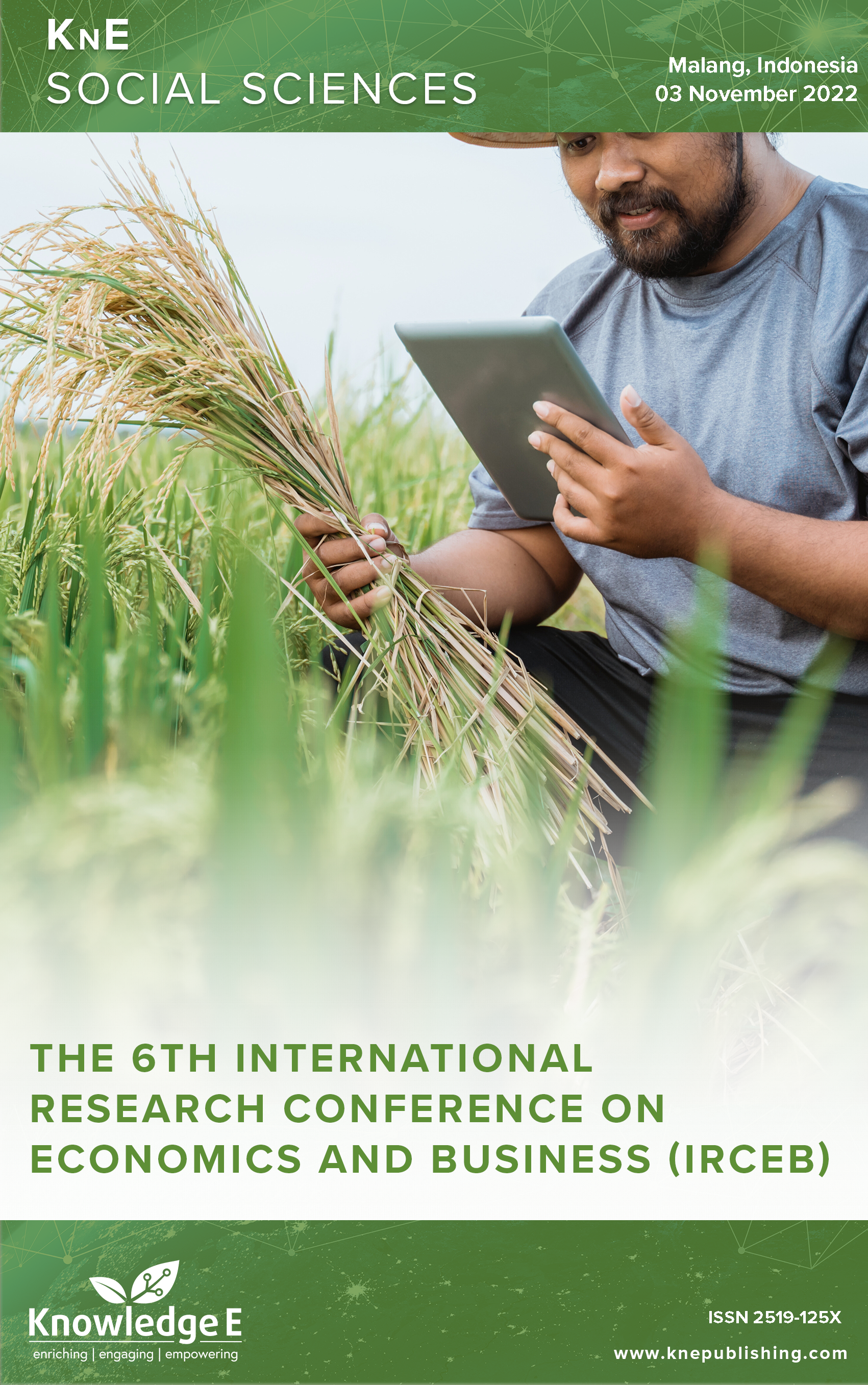Causality of CO2 Emissions, Energy Consumption, Renewable Energy on Economic Growth in Asia Case Studies of 6 Asian Countries
DOI:
https://doi.org/10.18502/kss.v9i4.15118Abstract
This research was conducted to examine the relationship and influence between CO2 emission variables, energy consumption, and renewable energy on economic growth in 6 countries in the Asia Pacific region, namely Indonesia, Thailand, Malaysia, Japan, China, and South Korea. These countries have different levels of economic growth. Economic activities carried out in each country produce different externalities. Therefore, this research was conducted to examine the relationship between CO2 emissions, energy consumption, renewable energy, and economic growth in 2014- 2020. The data used in this study were obtained from the World Bank and the Statistical Review of World Energy. The research was conducted using the panel data regression method with the fixed effect model (FEM) as the best model. The results of this study indicate that renewable energy, total energy consumption, and CO2 emissions have a significant effect on economic growth. Meanwhile, per capita energy consumption variable has no significant effect on economic growth. From the R-square value, all variables have a correlation of 99% and as much as 1% is explained by variables outside the study. Further suggestions from this research are the government and related agencies regarding environmental sustainability issues due to CO2 emissions which continue to increase energy consumption and is believed to hamper economic growth in 6 Asian countries.
Keywords: consumption of energy, emission CO2, economic growth, panel data regression, renewable energy
References
Antonakakis N, Chatziantoniou I, Filis G. Energy consumption, CO2 emissions, and economic growth: An ethical dilemma. Renewable and Sustainable Energy Reviews. 2017;68(September 2016):808–824. https://doi.org/10.1016/j.rser.2016.09.105 DOI: https://doi.org/10.1016/j.rser.2016.09.105
Arista TR, Amar S. Analisis Kausalitas Emisi Co2, Konsumsi Energi, Pertumbuhan Ekonomi, Dan Modal Manusia Di Asean. Jurnal Kajian Ekonomi Dan Pembangunan. 2019;1(2):519. DOI: https://doi.org/10.24036/jkep.v1i2.6262
Azam M, Khan AQ, Bakhtyar B, Emirullah C. The causal relationship between energy consumption and economic growth in the ASEAN-5 countries. Renew Sustain Energy Rev. 2015;47:732–745. DOI: https://doi.org/10.1016/j.rser.2015.03.023
Gozgor G, Lau CK, Lu Z. Energy consumption and economic growth: New evidence from the OECD countries. Energy. 2018;153:27–34. DOI: https://doi.org/10.1016/j.energy.2018.03.158
Kraft J, Kraft A. On the relationship between energy on the relationship between energy and GNP. The Journal of Energy and Development. 1978;3(2):401–403.
Rosiana A, Mahardika AS. Sistem Informasi, Keuangan, Auditing dan Perpajakan. Sikap. 2017;2(1):20–34. DOI: https://doi.org/10.32897/jsikap.v2i1.61
Saidi K, Hammami S. The impact of CO2 emissions and economic growth on energy consumption in 58 countries. Energy Rep. 2015;1:62–70. DOI: https://doi.org/10.1016/j.egyr.2015.01.003
S U. Global warming: Causes, effects, and solutions. Durreesamin Journal. 2015;1(4).
Stern D. The rise and fall of the environmental kuznets curve. World Dev. 2004;32(8):1419–1439. DOI: https://doi.org/10.1016/j.worlddev.2004.03.004
Retrinia Nur Alim DS. Analisis Hubungan Konsumsi Energi, Subsidi Energi, Inovasi Teknologi dan Pertumbuhan Ekonomi Di Indonesia. Jurnal Ilmiah Universitas Brawijaya; 2022.
Tri Basuki A. Analisis Regrsu Dalam Penelituan Ekonomi & Bisnis (dilengkapi Aplikasi SPSS & Eviews). Rajawali Pers; 2016.
D Labiba WP. Sebaran Emisi CO2 dan Implikasinya terhadap Penataan Ruang Area Industri di Kabupaten Kendal. Jurnal Pembangunan Kota. 2018;164-173. DOI: https://doi.org/10.14710/jpk.6.2.164-173
Phimphanthavong H. The impacts of economic growth on enviromental conditions in Laos. Local Development and Global Dynamics Graduate School of Social Science, University of Trento, Italy. 2013;766-774.
Alfonso Carfora RV. The Causal Relationship Between Energy Consumption, Energy Prices and Economic Growth in Asian Developing Countries: A Replication. ScientDirect. 2019;81-85. DOI: https://doi.org/10.1016/j.esr.2018.12.004

